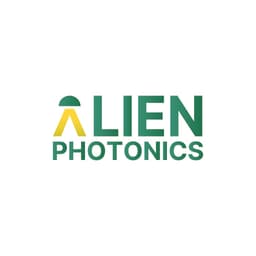


Non-Polarizing Beamsplitter (NPBS) Plates
NPBS Plate’s main function is to separate laser beam at specific ratio, into two beams, while preserving polarization state.
Estimated Shipping Date: May 15, 2025 - May 29, 2025
* - Shopping cart pricing is based on the most recent pricing and it is NOT ORDERING, but requesting an official quotation which should typically reach You within 1-2 business days.
- Description
- Applications
- Characteristics
Non-Polarizing Beam Splitter (NPBS) Plate: key fonctions, production and alternatives
What is NPBS plate?
Non-Polarizing Beam Splitter (NPBS) Plate is an advanced optical component designed to split incoming laser beam into two, based on designed split ratio and without altering polarization state.
NPBS plate alternatives
NPBS plate function is the same as NPBS cube. Usually, with very small effort these components can be interchangeable. NPBS plate splits beam according to designed split ratio, similarly to output couplers (partial reflectors), but also keeps polarization state intact.
How NPBS plates are made?
NPBS plates are fabricated using high-quality optical substrates. The surfaces are meticulously polished to ensure high surface quality and flatness. Non-polarizing beamsplitter coating is applied to achieve desired split ratio. Backside of plate is then (optionally) coated with anti-reflection coating to reduce back reflection (ghost reflections). Once finished, Alien Photonics NPBS plates are inspected and shipped to customer or stored in special optics boxes.
Non-Polarizing Beam Splitter (NPBS) Plates for imaging, lasers, 3D printing and other applications
NPBS plates for compact imaging systems
NPBS thin, plate-like design makes them preferable over NPBS cubes in space-constrained optical setups. In these devices (mini cameras, microscopes), Alien Photonics NPBS plates help to maintain uniform illumination without bulkiness of cube.
NPBS plates for ultrafast lasers
NPBS plate has an ability to split or combine broad bandwidths of high intensity laser pulses without introducing large dispersion or polarization dependent loss.
NPBS plates for 3D printing and scanning
By precisely directing laser beam in 3D scanners and printers, together with lenses, Alien Photonics NPBS plates ensure high accuracy and detail in 3D models and printed objects.
Characteristics of NPBS Plates
Alien Photonics NPBS plates are usually custom made. Some of typical values most popularly used when making custom NPBS plates can be found in the table.
| Specification | Typical values |
|---|---|
| Materials | UVFS, N-BK7, other materials. |
| Dimensions | Ø12.7 mm; Ø 25.4 mm; 25.4 x 25.4 mm, custom shapes |
| Surface Quality (depends on size and material) | 20-10 S-D, 40-20 S-D, 60-40 S-D, … |
| Surface flatness and transmitted wavefront distortion @ 632.8 nm | λ/10 ; λ/8; λ/4; ... |
| Clear Aperture (C.A.) | >85% ; 100% |
| Anti-reflective coating | AR(R<0.25%) |
| Split ratio (R:T) | 70:30; 90:10; 50:50; 30:70; 10:90 |
| Wavelength range | 450-650 nm; 650-900 nm; 900-1200 nm; 1200-1600 nm; |
| Polarization state error (depends on wavelength range, coating materials) | Ts-Tp<10%; Ts-Tp<7%; Ts-Tp<6%; |
| Laser Induced Damage Threshold (depends on wavelength range, coating materials) | >0.25 J/cm² @ 1064 nm, 10 ns, 10 Hz |